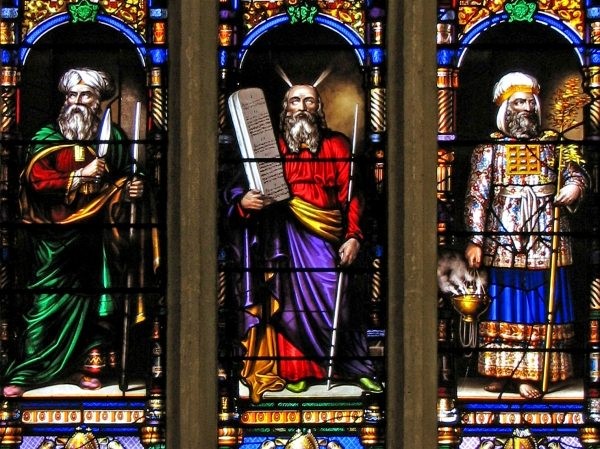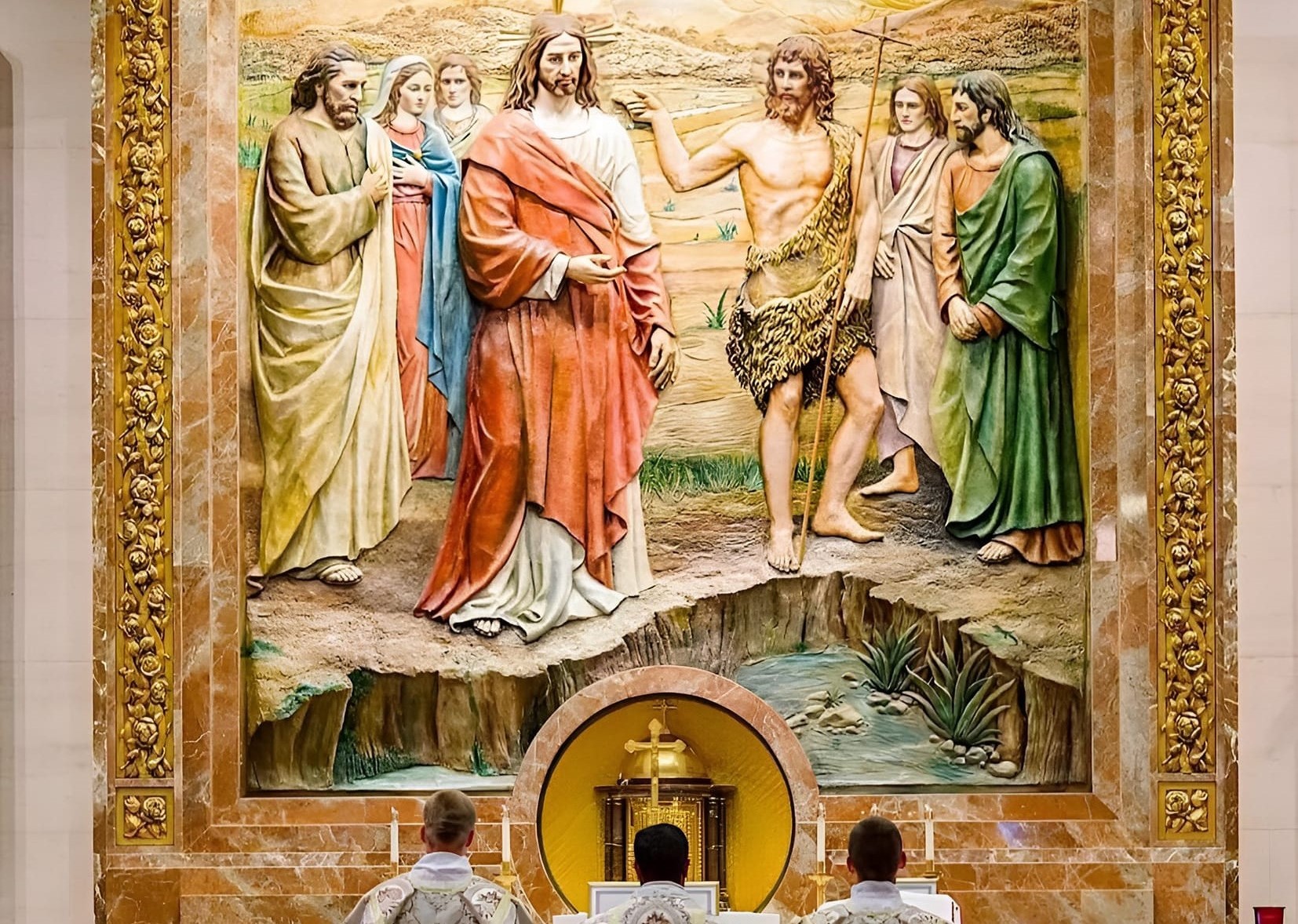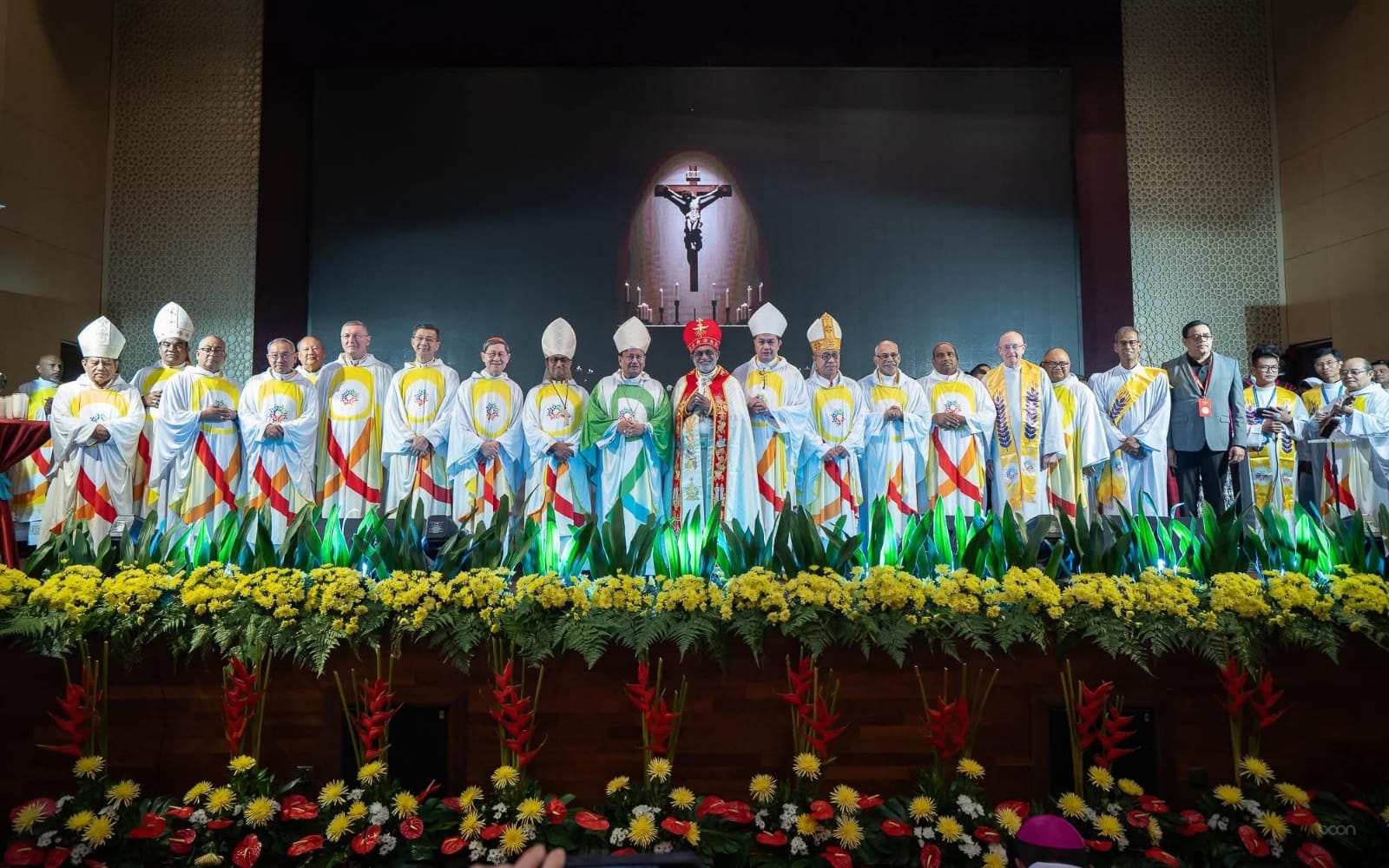– Rev José Mario O. Mandía
Both Joseph and Mary were instructed: “You shall call his name Jesus” (Matthew 1:21; Luke 1:31). The Messiah (or “Christ”) was thus given a human name. In Hebrew, “Jesus” means “God saves” (CCC 430).
The CCC (no 435) adds that this name “is at the heart of Christian prayer. All liturgical prayers conclude with the words ‘through our Lord Jesus Christ.’ The Hail Mary reaches its high point in the words ‘blessed is the fruit of thy womb, Jesus.’ The Eastern prayer of the heart, the Jesus Prayer, says: ‘Lord Jesus Christ, Son of God, have mercy on me, a sinner.’ Many Christians, such as St Joan of Arc, have died with the one word ‘Jesus’ on their lips.”
How about the title “Christ”?
The CCC, no 436, teaches that: “The word ‘Christ’ comes from the Greek translation of the Hebrew Messiah, which means ‘anointed.’ It became the name proper to Jesus only because he accomplished perfectly the divine mission that ‘Christ’ signifies. In effect, in Israel those consecrated to God for a mission that he gave were anointed in his name. This was the case for kings, for priests and, in rare instances, for prophets (cf Exodus 29:7; Leviticus 8:12; 1 Samuel 9:16; 10:1; 16:1, 12-13; I Kings 1:39; 19:16). This had to be the case all the more so for the Messiah whom God would send to inaugurate his kingdom definitively (cf Psalm 2:2; Acts 4:26-27). It was necessary that the Messiah be anointed by the Spirit of the Lord at once as king and priest, and also as prophet (cf Isaiah 11:2; 61:1; Zechariah 4:14; 6:13; Luke 4:16-21). Jesus fulfilled the messianic hope of Israel in his threefold office of priest, prophet and king.” What things are expected of Christ as priest, prophet and king?
PRIEST
The Letter to the Hebrews (5:1-3) explains that a priest “is appointed to act on behalf of men in relation to God, to offer gifts and sacrifices for sins. He can deal gently with the ignorant and wayward, since he himself is beset with weakness. Because of this he is bound to offer sacrifice for his own sins as well as for those of the people.”
The priest is an offerer of sacrifice. In the New Covenant or Testament, there is a new Priest. The Letter to the Hebrews explains that this is Jesus Christ, who is a priest “according to the order of Melchizedek” (5:5-6; 6:20) and not according to that of Levi (priests of the Old Law).
The Letter to the Hebrews then proceeds to describe in chapter 7 the difference between the priests of the Old Law and the Priest of the New Law. The superiority of the priesthood of Christ means that the sacrifice offered by the priests of the Old Law were far inferior to the one single Sacrifice offered by the Priest of the New Law (cf Hebrews 10:11-14). In heaven, “Christ permanently exercises his priesthood, for he ‘always lives to make intercession’ for ‘those who draw near to God through him’ (Hebrews 7:25). As ‘high priest of the good things to come’ he is the center and the principal actor of the liturgy that honors the Father in heaven (Hebrews 9:11; cf Revelation 4:6-11)” (CCC 662).
PROPHET
The role of a prophet is to transmit God’s word. This requires listening to God and teaching men. “For I have not spoken on my own authority; the Father who sent me has himself given me commandment what to say and what to speak. And I know that his commandment is eternal life. What I say, therefore, I say as the Father has bidden me” (John 12:49-50). Jesus Christ not only preached, but practiced what he preached.
KING
The role of a king is obviously to rule and govern. But it also includes the responsibility of being a shepherd. In John, chapter 10 (vv 11-14), Jesus says: I am the good shepherd. The good shepherd lays down his life for the sheep. He who is a hireling and not a shepherd, whose own the sheep are not, sees the wolf coming and leaves the sheep and flees; and the wolf snatches them and scatters them. He flees because he is a hireling and cares nothing for the sheep.”


 Follow
Follow


